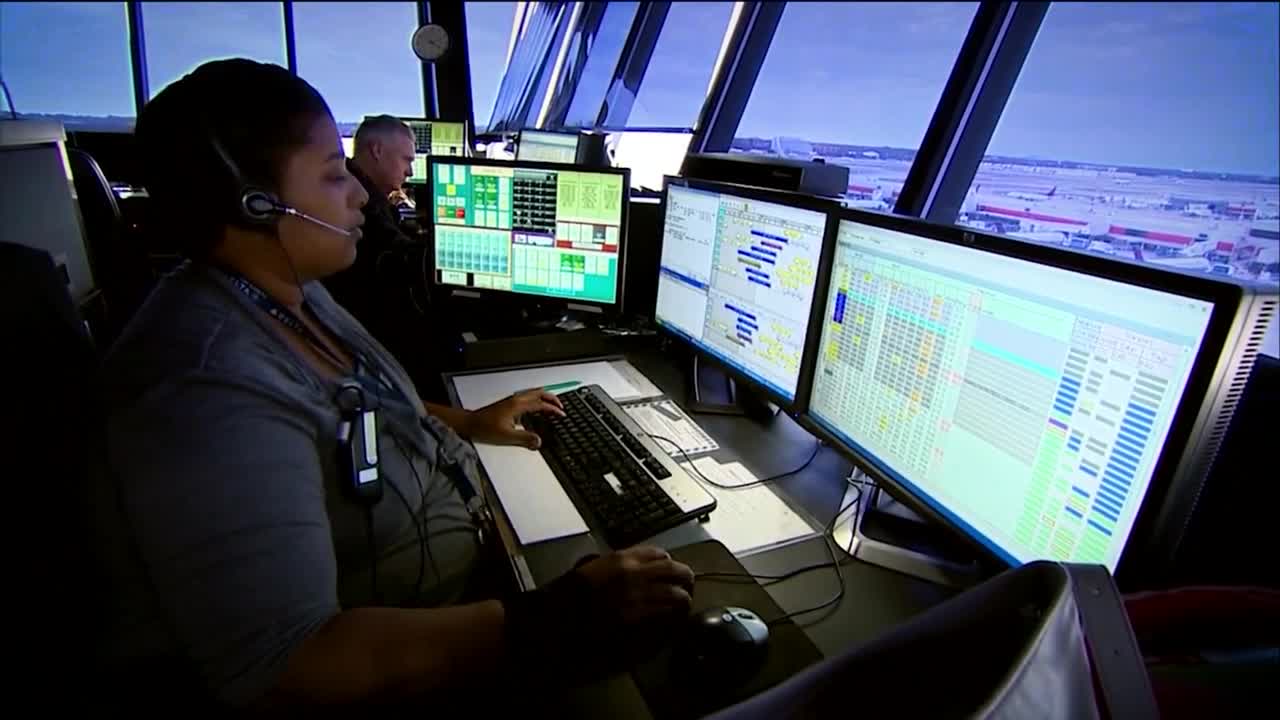DENVER — David Riley spent 32 years as an air traffic controller in the Marine Corps and at Denver International Airport.
Riley, who is now retired, spoke with Denver7 about the high-stakes job.
“It's a highly technical job done by people that have some extraordinary skills,” he said. “We have to be on our game 100% of the time.”
Riley says there’s been a shortage of controllers in recent years, leading them to be overworked and underpaid.
“We have a contractual obligation as controllers, that if you are fatigued and you're not fit for duty, you have to call in and say, ‘I am not fit for duty,’” he told Denver7. “God forbid that, you know, something tragic would happen and there'd be a loss of life because a controller is fatigued and can't do their job.”

With the ongoing government shutdown now the longest in U.S. history, Riley says the situation is now even tougher for controllers.
“We’ve created this additional distraction of not paying the controllers,” he explained. “What you don't want is somebody that's in a highly stressful position working multiple jobs. I know of controllers that are doing ride-share jobs, that are doing food delivery services, security guard services.”
The Federal Aviation Administration is cutting 10% of air traffic to ease the strain on controllers, but Riley calls the plan “smoke and mirrors.”
“The 10% cuts to traffic — it's not really that effective,” he said. “If you're talking a 50% or 75% reduction in traffic, sure, that would have a huge impact. But it would also probably trash our economy.”

Riley says air travel “does not need to be used as a political football.”
“It's unfortunate that politicians are using this against the American people as another weapon, in addition to all the other things they're doing to try to force the shutdown to be over,” he said. “This is more self-imposed pain and intentional, in my opinion, to make the public outraged and pressure whatever side to get to the [negotiating] table.”
Riley also wants to see the FAA and the National Air Traffic Controllers Association (NATCA), the controllers’ union, work out their own deal.
“They need to negotiate provisions, whether it's through legislation or contractual stipulations, that they get their pay, even during the shutdown, not the back pay,” he said. “Essential workers that are doing a safety-related job, such as air traffic controllers, TSA, the military — they should not be used as a political football. So there needs to be legislative changes done to take care of those people that we’re asking to do those jobs.
“They're essential to our day-to-day lives, and they shouldn't be used as pawns in this game.”





